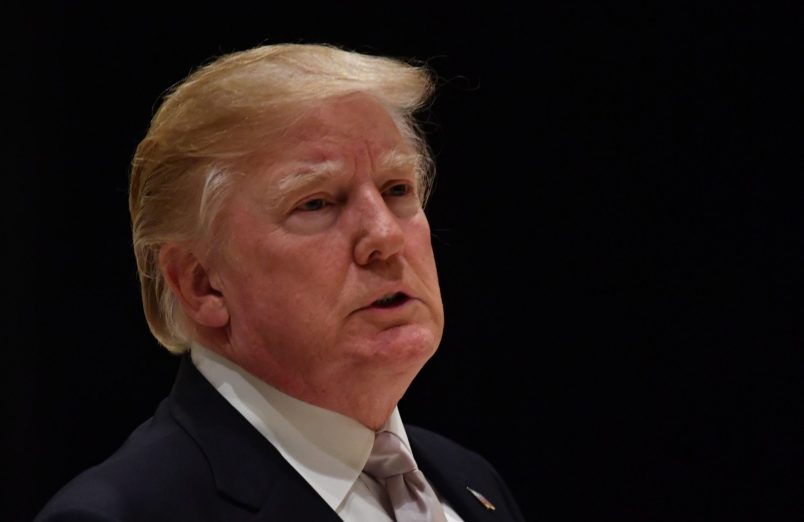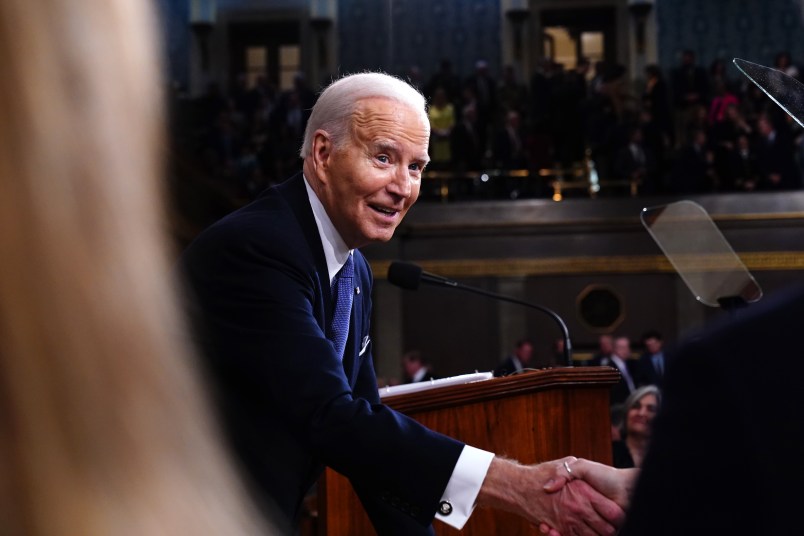No matter how the final Senate conviction vote shakes out, the case that the House impeachment managers presented this week made the Jan. 6 mob a defining episode of his presidency.
Four years of Trump flirtations with white supremacists, of his leaning into political violence, of his utter disinterest in the obligations of leadership— those four years collapsed onto themselves as the House managers recounted the days and hours that preceded the riot against Congress’ certification of the election results.
Trump’s willingness to throw democracy under the bus in order to keep himself in power is in character with all the other ways he put himself above the country he was elected to serve.
Republican senators can squirm and twist around the question of whether Trump was intent on having those rallygoers violently disrupt Congress’ certification of his defeat. But the House clearly established that, in neglecting to call off the mob — in encouraging their false beliefs that the election was stolen from them — Trump fell well short of the duties of his office, just as he had fallen short time and time again, throughout the entirety of his administration.
Under his watch and with his encouragement, the American tradition of a peaceful transfer of power was interrupted.
“This wasn’t just an attack on the Capitol Building and the dedicated people inside. It was an attack on what we were elected to preserve, our democracy,” Rep. David Cicciline (D-RI) told the senators. “This attack on our election, on the peaceful transfer of power, from one president to the next, didn’t even happen during the Civil War. But it did just happen because of the cold, calculated and conspiratorial acts of our former president Donald J. Trump.”
The first day of House managers’ presentation was paced to look at the months, and then the days, and then the hours and the minutes that shaped the Jan. 6 attack on the electoral process.
The throughline was Trump’s unrelenting disregard for democracy.
He would not let his supporters believe that a larger share of the country might choose someone other than him to occupy the White House. And when the American electorate did, he grasped at every lever at his disposal to try to stop the implementation of their will.
“This was never about one speech. He built this mob over many months with repeated messaging until they believed that they’d been robbed of their vote, and they would do anything to stop the certification,” Rep. Eric Swalwell (D-CA) argued.
The second day of the House’s presentation to the Senate established that Trump had no qualms about violence if it was in furtherance of his agenda. While violence has always lingered around the edges of the body politic, Trump repeatedly validated it as an appropriate means of expression for his followers.
The Senate was reminded of the several occasions — at campaign rallies, in tweets and at press conferences — that Trump refused to condemn the destructive actions of his supporters. Often, he encouraged it.
Jan. 6 was no different.
“The Republicans have to get tougher. You’re not going to have a Republican Party if you don’t get tougher,” Trump said at the Jan. 6 rally, later telling his supporters: “When you catch somebody in a fraud, you’re allowed to go by very different rules.”
This rhetoric was not something Trump only embraced recently, but part of a “pattern” laid out by the House managers.
Had you forgotten how Trump retweeted a video in which a supporter said that “the only good Democrat is a dead Democrat”? Well now, you’ll always remember that the supporter not only showed up at the capitol on Jan. 6, but then promised to return on Inauguration day, when he believed there would be “blood running out of that building.”
The House’s case highlighted that the destructive vitriol of the Trump supporters who showed up to the Capitol that day could not be unwound from their white nativist conceptions of the country. The rioters shouted racial slurs and touted racists symbols. Cicilline recalled the account of a Black custodial employee at the Capitol who said it felt “bad” and “degrading” to clean up the blood and the feces left behind by the mob.
In their entreaties to the Senate jurors, the impeachment managers said that a conviction vote would give the verdict on Jan. 6 — and what it represented.
“We simply cannot sweep this under the rug,” Rep. Diana DeGette (D-CO) said. “We must take a united stand, all of us, that this is not American.”
They won’t not get that verdict; they really never had the chance.
But the blind eye that Senate Republicans will turn towards the conduct laid out by the managers won’t make that legacy disappear. It will just make them part of it.

 Members-Only Article
Members-Only Article



